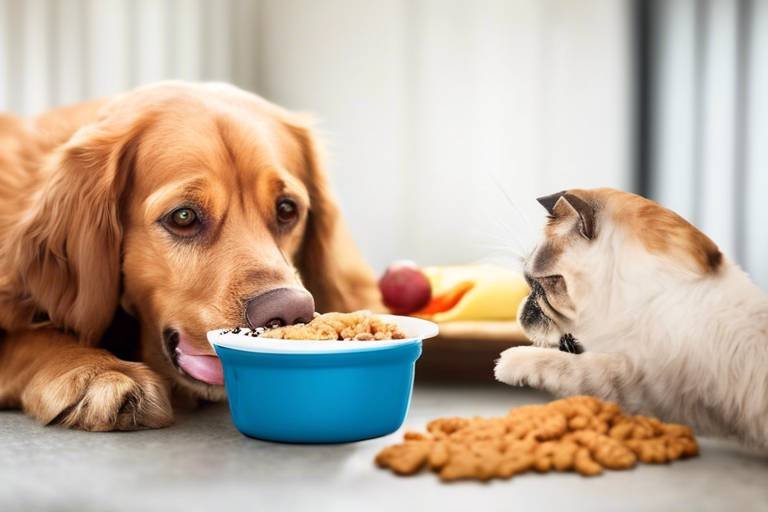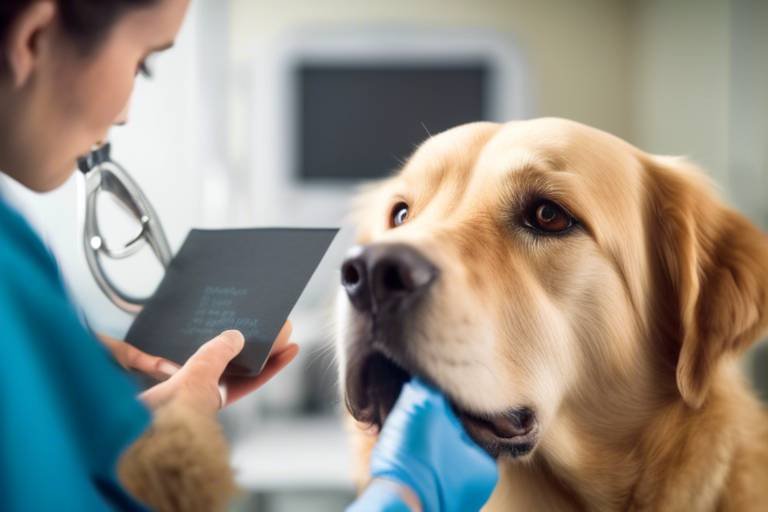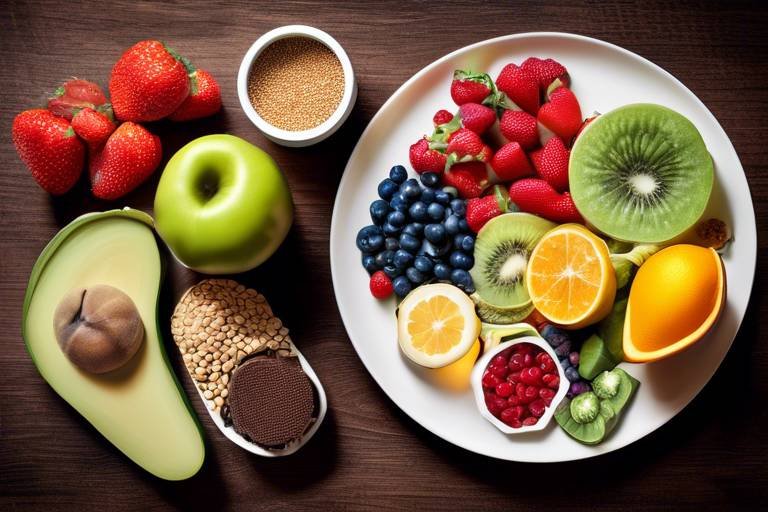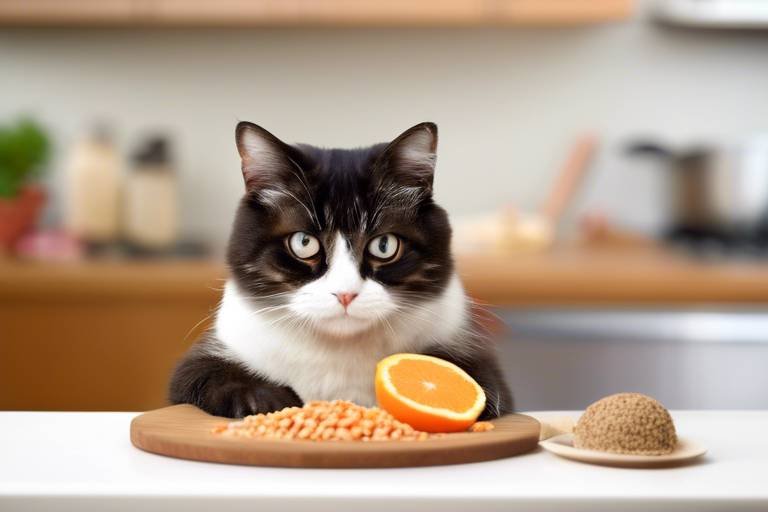How to Choose the Right Food for Senior Pets
Choosing the right food for your senior pet is more than just a matter of preference; it’s a crucial aspect of ensuring their long-term health and happiness. As our furry companions age, their bodies undergo significant changes that affect their nutritional needs. This article provides essential guidance on selecting appropriate nutrition for senior pets, focusing on their unique dietary needs, health considerations, and tips for maintaining their overall well-being. Understanding these factors can make a world of difference in your pet's quality of life, helping them stay active and vibrant well into their golden years.
As pets age, their nutritional requirements change significantly. Senior pets often need diets that are lower in calories but higher in specific nutrients to support their aging bodies. Essential nutrients such as protein, fiber, and omega fatty acids become increasingly important. These nutrients help maintain muscle mass, promote healthy digestion, and support cognitive function. Moreover, senior pets may also require added vitamins and minerals to combat the effects of aging. It’s essential to look for pet foods that list high-quality ingredients and are specifically formulated for senior pets to ensure they receive the right balance of nutrients they need to thrive.
Senior pets often face various health challenges that can significantly impact their quality of life. Conditions such as arthritis, kidney disease, and dental problems are prevalent in older animals. Tailored nutrition can play a vital role in managing these issues effectively. For example, foods enriched with glucosamine and chondroitin can support joint health, while those lower in phosphorus may benefit pets with kidney problems. Additionally, dental health is critical; crunchy kibble can help reduce plaque buildup. By understanding the common health issues that affect senior pets, you can make informed decisions about their diet that address these concerns head-on.
Obesity is a common concern for older pets, often leading to a range of health complications. Just like us, as pets age, their metabolism slows down, and they tend to be less active. This makes it crucial to manage their weight carefully. Choosing low-calorie food options is one effective way to help maintain a healthy weight. Look for foods that are labeled as 'light' or 'weight management' and contain fewer calories than standard formulas. Additionally, incorporating regular exercise into their routine, even if it's just a leisurely walk, can help keep those extra pounds at bay.
Understanding the caloric needs of senior pets is crucial for maintaining a healthy weight. As a general rule of thumb, senior pets require fewer calories than younger pets. To determine the right caloric intake for your pet, consider factors such as their weight, activity level, and overall health. You can consult with your veterinarian to develop a personalized feeding plan that meets your pet's specific needs. Monitoring their weight regularly is also important; a sudden change can indicate health issues that may require immediate attention.
High-protein diets can support muscle maintenance in senior pets, which is essential as they age. As pets grow older, they naturally lose muscle mass, and a protein-rich diet can help combat this decline. Look for pet foods that list high-quality animal proteins, such as chicken, beef, or fish, as the primary ingredient. These protein sources not only help maintain muscle but also provide essential amino acids that support overall health. Remember, a well-balanced diet that includes adequate protein is key to keeping your senior pet strong and active.
Digestive issues can become more prevalent in senior pets, making it vital to choose foods that promote digestive health and ease gastrointestinal discomfort. Look for diets that are high in fiber, which can help regulate digestion and prevent constipation. Ingredients like pumpkin or beet pulp are excellent sources of fiber and can be beneficial for older pets. Additionally, probiotics and prebiotics are great additions to their diet, as they support a healthy gut microbiome, improving overall digestive health.
Selecting high-quality ingredients is vital for senior pet food. When shopping for pet food, it's important to scrutinize the ingredient list. Look for whole meats, whole grains, and fresh fruits and vegetables. Avoid foods with fillers, artificial colors, and preservatives, as these can lead to health issues over time. A well-rounded diet not only provides the necessary nutrients but also ensures your pet enjoys their meals. Remember, the right ingredients can make all the difference in your pet's health and happiness.
The debate between grain-free and grain-inclusive diets continues to spark discussions among pet owners. While some argue that grain-free diets are better for pets, others believe that whole grains can provide essential nutrients and fiber. It's crucial to consider your pet's individual needs and any specific health concerns. For instance, pets with allergies may benefit from grain-free options, while those that require additional fiber might thrive on grain-inclusive diets. Consulting with your veterinarian can help you determine the best choice for your senior pet.
Deciphering pet food labels can be confusing, but it's essential for making informed choices. Start by looking at the guaranteed analysis, which provides information on the food's protein, fat, fiber, and moisture content. Additionally, pay attention to the ingredient list; ingredients are listed in descending order by weight. This means that the first few ingredients are the most significant portion of the food. Always look for high-quality ingredients and avoid foods with vague terms like "meat by-products." With a little practice, reading food labels can become second nature, ensuring your pet gets the best nutrition possible.
- What should I look for in senior pet food? Look for high-quality protein sources, essential nutrients, and added supplements for joint and digestive health.
- How often should I feed my senior pet? Generally, feeding them twice a day is recommended, but consult with your vet for a personalized plan.
- Are grain-free diets better for senior pets? It depends on the individual pet's health needs; consult your vet to determine the best option.
- Can I give my senior pet treats? Yes, but choose healthy treats that align with their dietary needs and monitor their overall caloric intake.
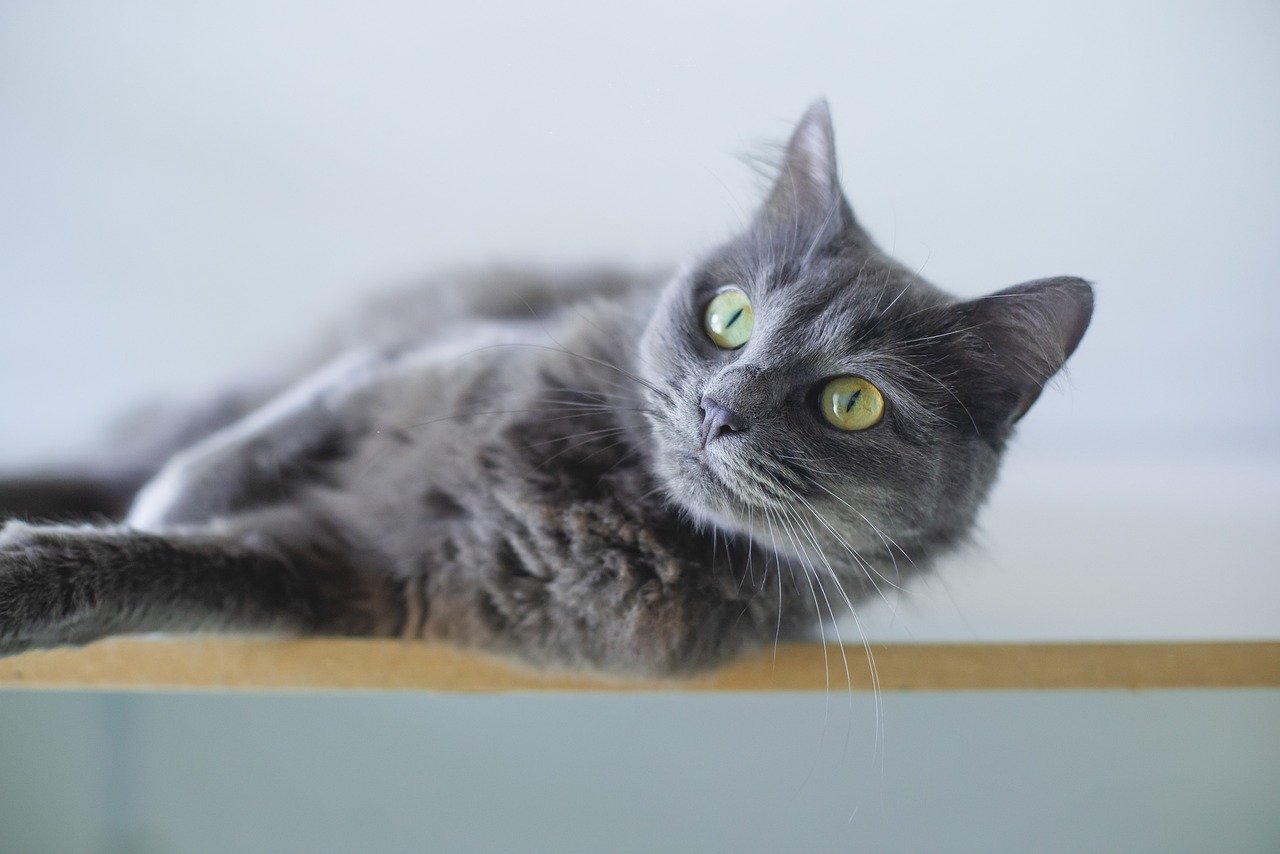
Understanding Senior Pet Nutritional Needs
As our beloved furry companions age, their nutritional needs undergo significant changes, much like how our own dietary requirements evolve over time. It's essential to recognize that senior pets, typically defined as those aged seven years and older, face unique challenges that necessitate a tailored approach to their diet. Just as a fine wine matures, so do our pets, and with this maturation comes the need for a balanced diet that supports their health and vitality.
One of the primary considerations for senior pets is the need for high-quality protein. As pets grow older, they naturally lose muscle mass, which can lead to a decline in strength and mobility. Protein plays a vital role in maintaining muscle mass, so incorporating protein-rich foods into their diet can significantly benefit their overall health. Look for pet foods that list a high-quality source of protein, such as chicken, fish, or lamb, as the first ingredient. This ensures your pet receives the necessary amino acids to support their muscles and energy levels.
Another critical nutrient for senior pets is fiber. Aging pets often experience digestive issues, so a diet rich in fiber can help promote healthy digestion and alleviate constipation. Foods containing ingredients like pumpkin, sweet potatoes, or brown rice can provide the necessary fiber while also being gentle on their stomachs. Additionally, fiber aids in weight management by making your pet feel fuller for longer, which is particularly important for those who may be less active.
Moreover, senior pets may benefit from an increase in antioxidants in their diet. Antioxidants, such as vitamins C and E, help combat oxidative stress and support the immune system. Foods rich in antioxidants, like blueberries and spinach, can help keep your pet's immune system robust, allowing them to fend off illnesses more effectively. It's like giving their body a shield against the wear and tear of aging!
When selecting food for senior pets, it's also essential to consider their fat content. While they still need healthy fats for energy and skin health, the amount should be moderated to prevent obesity, which is a common issue in older pets. Look for foods with moderate fat levels that include sources of omega-3 and omega-6 fatty acids, as these can help maintain a healthy coat and skin, as well as support joint health.
In summary, understanding the nutritional needs of senior pets is crucial for ensuring they lead happy, healthy lives in their golden years. By focusing on high-quality proteins, fiber, antioxidants, and balanced fat content, you can make informed choices that cater to their specific requirements. Remember, a well-nourished pet is a happy pet, and investing time in their diet is an investment in their overall well-being!

Common Health Issues in Senior Pets
As our furry companions age, they often face a range of health challenges that can significantly affect their quality of life. Just like humans, senior pets experience a variety of conditions that can be managed with proper care and nutrition. Understanding these common health issues is crucial for pet owners who want to provide the best possible support for their aging friends. Some of the most prevalent health concerns include arthritis, kidney disease, diabetes, and cognitive dysfunction. Each of these conditions requires specific dietary adjustments and careful monitoring to ensure your pet remains comfortable and healthy.
One of the most common issues is arthritis, which affects mobility and can lead to significant pain. Older pets may become less active due to joint stiffness, making it essential to choose foods rich in omega-3 fatty acids, which can help reduce inflammation. Additionally, incorporating glucosamine and chondroitin supplements into their diet can provide extra support for joint health.
Another serious condition is kidney disease, which is often seen in senior pets. This ailment can lead to a variety of symptoms, including increased thirst and urination, weight loss, and poor appetite. Diet is critical here; senior pets with kidney issues often benefit from a diet lower in protein but higher in high-quality ingredients that are easier to digest. Foods specifically formulated for kidney support can help manage this condition effectively.
Then there's diabetes, which can affect both dogs and cats. This condition requires a careful balance of carbohydrates and protein in their diet. High-fiber foods can help regulate blood sugar levels, making it vital to choose pet foods that are specifically designed for diabetic pets. Regular monitoring and a consistent feeding schedule are essential to manage this condition.
Lastly, many senior pets experience cognitive dysfunction, similar to dementia in humans. This can manifest as disorientation, disrupted sleep patterns, and changes in behavior. Diets enriched with antioxidants, omega-3 fatty acids, and certain vitamins can support brain health and slow cognitive decline. It’s like giving their brain a little boost to keep them sharp and engaged!
In summary, while the aging process brings about various health challenges for our beloved pets, being proactive with their nutrition can make a world of difference. Here’s a quick table summarizing the common health issues and dietary recommendations:
| Health Issue | Dietary Recommendations |
|---|---|
| Arthritis | Foods rich in omega-3 fatty acids, glucosamine, and chondroitin |
| Kidney Disease | Lower protein diet with high-quality ingredients |
| Diabetes | High-fiber foods, controlled carbohydrate intake |
| Cognitive Dysfunction | Antioxidant-rich diets, omega-3 fatty acids, and specific vitamins |
By understanding these common health issues and how nutrition plays a pivotal role, you can help your senior pet thrive in their golden years. Remember, a well-balanced diet tailored to their specific needs can enhance their quality of life, keeping them happy and healthy.
Q: What should I look for in senior pet food?
A: Look for high-quality ingredients, appropriate protein levels, and added supplements for joint and cognitive health. Always consult your veterinarian for specific dietary recommendations based on your pet's health status.
Q: How can I tell if my pet is overweight?
A: You can assess your pet's weight by feeling their ribs; you should be able to feel them without excessive pressure. Also, check for a noticeable waist when viewed from above. If you're unsure, consult your vet for a proper evaluation.
Q: Are grain-free diets better for senior pets?
A: Grain-free diets can be beneficial for some pets, especially those with specific allergies or sensitivities. However, it's essential to discuss this option with your veterinarian, as not all grain-free diets are suitable for every pet.
Obesity and Weight Management
As our beloved pets age, they often become less active, leading to a common concern: **obesity**. Just like us, senior pets can struggle with weight management, making it essential for pet owners to be vigilant about their furry friends' diets. Obesity in senior pets can lead to a myriad of health issues, including diabetes, joint problems, and even heart disease. So, how do we tackle this issue effectively? It all starts with understanding their unique caloric needs and choosing the right food options.
One of the first steps in managing your senior pet's weight is to calculate their **caloric needs**. Unlike younger pets, senior pets generally require fewer calories due to decreased activity levels. To get a rough estimate of your pet's daily caloric intake, you can use the following formula:
| Pet Weight (lbs) | Calories Needed (per day) |
|---|---|
| 5 | 200 |
| 10 | 350 |
| 20 | 600 |
| 30 | 800 |
Once you have a better understanding of how many calories your senior pet needs, you can begin to make informed choices about their food. Look for **low-calorie** options that still provide essential nutrients. Many pet food brands offer specialized formulas for senior pets that are designed to support weight management without sacrificing taste or nutrition. These diets often contain higher fiber content, which helps pets feel full without the extra calories.
Another critical factor in weight management is the **quality of protein** in your pet's diet. High-protein diets can be beneficial for senior pets, as they help maintain muscle mass while promoting healthy weight loss. When choosing food, look for options that list high-quality protein sources, such as chicken, fish, or lamb, as the first ingredient. This ensures your pet is getting the nutrients they need without unnecessary fillers that can contribute to weight gain.
In addition to selecting the right food, incorporating regular exercise into your senior pet's routine is vital. Even short walks or play sessions can help keep their weight in check and improve their overall well-being. Consider engaging them in low-impact activities that are suitable for their age and health condition. Remember, consistency is key!
In conclusion, managing obesity in senior pets requires a thoughtful approach to their diet and lifestyle. By understanding their caloric needs, choosing high-quality, low-calorie foods, and maintaining an active routine, you can help your furry friend lead a healthier, happier life. After all, a healthy pet is a happy pet!
- How can I tell if my senior pet is overweight? Look for signs such as difficulty in feeling their ribs, a lack of a defined waistline, and decreased energy levels.
- What should I do if my pet is overweight? Consult your veterinarian for a tailored weight loss plan, including dietary changes and exercise recommendations.
- Are there specific foods I should avoid for senior pets? Avoid foods high in fillers, artificial preservatives, and excessive carbohydrates, as these can contribute to weight gain.
Caloric Needs of Senior Pets
When it comes to our beloved senior pets, understanding their caloric needs is essential for maintaining their health and vitality. As pets age, their metabolism tends to slow down, which means they require fewer calories than they did in their younger years. This shift can be quite surprising for pet owners who may not realize that their furry companions no longer need the same amount of food. In fact, a senior pet's caloric intake can be influenced by several factors, including their size, breed, activity level, and overall health condition.
To determine the right caloric intake for your senior pet, it's crucial to start with their ideal body weight. Many pet owners may overlook this step, but it’s like trying to find the right key for a lock; without the correct weight, you might end up with the wrong diet. Once you have established their ideal weight, you can use a simple formula to calculate their daily caloric needs. Generally, the formula is:
| Factor | Calculation |
|---|---|
| Resting Energy Requirement (RER) | RER 70 x (body weight in kg)^0.75 |
| Daily Caloric Needs | Daily Calories RER x Activity Factor (1.2-1.4 for senior pets) |
For instance, if you have a senior dog weighing 10 kg, the calculation would look something like this:
RER 70 x (10)^0.75 ≈ 400 calories Daily Calories 400 x 1.2 (for a less active pet) ≈ 480 calories
Now, this is just a baseline; adjustments may be necessary based on your pet's individual needs. If your senior pet is less active, their caloric needs will be on the lower end of the scale. Conversely, if they are still quite spry, they may require a bit more. It's like tuning a musical instrument; a little tweak here and there can make all the difference!
Another important aspect to consider is the quality of calories. Not all calories are created equal, especially when it comes to senior pets. Focus on providing nutrient-dense foods that are rich in essential vitamins and minerals. This can include high-quality protein sources to help maintain muscle mass, healthy fats for energy, and fiber to support digestion. Remember, it's not just about how much they eat, but also what they are eating.
In conclusion, understanding and adjusting the caloric needs of your senior pet is crucial for their overall health and well-being. By keeping a close eye on their weight and adjusting their diet accordingly, you can help ensure that your furry friend enjoys their golden years to the fullest.
- How do I know if my senior pet is overweight? Look for signs such as difficulty in feeling their ribs, lack of a defined waist, or decreased energy levels.
- Can I feed my senior pet the same food as my younger pet? It’s best to choose a diet specifically formulated for senior pets, as their nutritional needs differ significantly.
- How often should I feed my senior pet? Smaller, more frequent meals can be beneficial for senior pets to aid digestion and maintain energy levels.
Benefits of High-Protein Diets
As our beloved pets age, their dietary needs evolve, and one of the most significant shifts is the requirement for higher protein intake. High-protein diets offer a multitude of benefits that can help senior pets maintain their strength and vitality. Just like humans, older pets experience muscle loss, which can lead to weakness and decreased mobility. By incorporating more protein into their meals, you can help combat these issues and promote a healthier, more active lifestyle for your furry friend.
One of the primary advantages of a high-protein diet is its role in preserving muscle mass. As pets age, they naturally lose muscle due to a decline in physical activity and changes in metabolism. A diet rich in protein can help mitigate this loss by providing the necessary building blocks for muscle repair and growth. Think of protein as the bricks that build a sturdy house; without enough bricks, the structure becomes weak and unstable.
Moreover, protein is essential for maintaining a healthy immune system. Senior pets are more susceptible to illnesses, and a diet that includes adequate protein can enhance their overall health and well-being. Proteins are crucial for producing antibodies and other immune system components. This means that a high-protein diet can effectively bolster your pet's defenses, helping them fight off infections and diseases.
In addition to muscle maintenance and immune support, high-protein diets can also aid in weight management. Many senior pets struggle with obesity, which can further complicate existing health issues. By choosing protein-rich foods, you can provide your pet with the necessary nutrients while keeping their caloric intake in check. Protein has a higher satiety value compared to carbohydrates, meaning it can help your pet feel fuller for longer, reducing the likelihood of overeating. This is particularly important for pets that may not be as active as they once were.
When selecting high-protein foods, it's essential to consider the source of the protein. Look for high-quality ingredients, such as real meat or fish, rather than by-products or fillers. Quality matters when it comes to your pet's health. You want to ensure that the protein they are consuming is easily digestible and packed with essential amino acids. A diet that includes animal-based proteins can provide the complete amino acid profile that senior pets need.
In summary, a high-protein diet can significantly benefit senior pets by:
- Preserving muscle mass and strength
- Supporting a robust immune system
- Aiding in weight management and satiety
- Providing high-quality, digestible protein sources
So, if you want to give your senior pet the best chance at a healthy and active life, consider transitioning them to a high-protein diet. It’s one of the most effective ways to ensure they enjoy their golden years to the fullest!
Q: How much protein does my senior pet need?
A: The protein requirement can vary based on your pet's size, activity level, and health status. Generally, senior pets may benefit from a protein intake of around 25-30% of their total diet. Consult your veterinarian for personalized recommendations.
Q: Are there any risks associated with a high-protein diet for senior pets?
A: While protein is essential, too much can strain the kidneys, especially in pets with pre-existing kidney issues. Always consult your veterinarian before making significant dietary changes.
Q: Can I feed my senior pet human food that is high in protein?
A: Some human foods can be beneficial, such as lean meats and certain fish. However, avoid foods that are toxic to pets, such as onions, garlic, and chocolate. Always check with your vet before introducing new foods.
Digestive Health Considerations
As our furry companions age, their digestive systems often become more sensitive, leading to a host of challenges that can affect their overall health and happiness. Just like us, senior pets may experience issues such as constipation, diarrhea, or even food intolerances. Therefore, it’s essential to choose a diet that not only meets their nutritional needs but also promotes digestive health. This means looking for foods that are easy to digest and contain beneficial ingredients that can support gut function.
One of the key components to consider is the inclusion of fiber. Fiber is crucial for maintaining healthy digestion, as it helps regulate bowel movements and can prevent constipation. High-fiber diets can also support weight management, which is particularly important for senior pets who may be less active. When selecting food, look for options that include natural sources of fiber, such as:
- Sweet potatoes
- Pumpkin
- Brown rice
- Peas
Additionally, consider foods that are enriched with probiotics and prebiotics. Probiotics are live bacteria that promote a healthy gut flora, while prebiotics serve as food for these beneficial bacteria. Together, they work to enhance digestion and boost the immune system, helping senior pets absorb nutrients more effectively. When browsing for pet food, check the ingredients list for terms like "live active cultures" or "fermented ingredients," which indicate the presence of probiotics.
Another aspect to keep in mind is the moisture content of your pet's food. Senior pets can become dehydrated more easily, especially if they are on a dry kibble diet. Therefore, incorporating wet food or adding water to dry kibble can help maintain hydration levels and support digestive health. A well-hydrated pet is less likely to suffer from urinary tract issues, which can be common in older animals.
Finally, always consult with your veterinarian before making significant changes to your senior pet's diet. They can provide personalized recommendations based on your pet’s specific health conditions and dietary needs. Remember, the right food can make a world of difference in your pet's quality of life, ensuring they remain happy, healthy, and full of vitality in their golden years.
Q1: What are the signs that my senior pet has digestive issues?
A1: Signs may include vomiting, diarrhea, constipation, bloating, or a change in appetite. If you notice any of these, consult your veterinarian.
Q2: Should I switch to a special diet for my senior pet?
A2: Yes, senior pets often have different nutritional needs. Look for diets formulated specifically for older pets that address their health concerns.
Q3: Can I give my senior pet human food for better digestion?
A3: Some human foods can be beneficial, but always check with your vet first. Foods like pumpkin and sweet potatoes are generally safe, but avoid toxic foods like chocolate, onions, and garlic.
Q4: How can I improve my senior pet's digestion?
A4: Ensure they have a balanced diet rich in fiber, probiotics, and adequate hydration. Regular vet check-ups are also essential to monitor their digestive health.

Choosing the Right Ingredients
When it comes to selecting food for our senior pets, the ingredients we choose play a crucial role in their overall health and well-being. As pets age, their bodies become more sensitive, and their nutritional needs change significantly. It's essential to focus on high-quality ingredients that promote longevity and vitality. But what exactly should you be looking for? Let's dive into the world of pet food ingredients and discover the best options for our furry friends.
First and foremost, protein is a key ingredient that should be prioritized. Senior pets require a diet rich in protein to help maintain muscle mass and support their energy levels. Look for foods that list high-quality protein sources, such as chicken, beef, or fish, as the first ingredient. These sources provide the necessary amino acids that are vital for your pet's health. On the flip side, be cautious of foods that contain low-quality protein fillers, such as meat by-products or corn gluten meal, as they do not offer the same nutritional benefits.
Another important component to consider is healthy fats. Fats are essential for energy and help maintain healthy skin and a shiny coat. Look for sources of omega-3 and omega-6 fatty acids, which are often found in fish oil and flaxseed. These fats can also help reduce inflammation, which is particularly important for senior pets who may suffer from arthritis or other inflammatory conditions. However, moderation is key, as too much fat can lead to obesity, a common issue in older pets.
Additionally, fiber plays a significant role in digestive health. Senior pets often experience digestive issues, so choosing a food that includes fiber-rich ingredients like sweet potatoes, pumpkin, or brown rice can help promote regular bowel movements and prevent constipation. Fiber also aids in weight management, helping your pet feel full without overindulging in calories. When selecting food, check for the inclusion of these beneficial ingredients, as they can greatly impact your pet's gastrointestinal health.
It's also worth noting that some senior pets may have specific dietary restrictions or sensitivities. For instance, if your pet has allergies, you may want to consider a limited ingredient diet that avoids common allergens such as grains or certain proteins. In this case, foods labeled as "grain-free" or "hypoallergenic" can be beneficial. However, it's essential to consult with your veterinarian before making any drastic changes to your pet's diet.
In terms of additives, always opt for foods that are free from artificial colors, flavors, and preservatives. Natural ingredients not only provide better nutrition but also reduce the risk of adverse reactions in sensitive pets. Look for foods that include vitamins and minerals to ensure your senior pet receives a complete and balanced diet. A well-rounded food will typically have a variety of ingredients that work together to support overall health.
To summarize, when choosing the right ingredients for your senior pet's food, keep these key points in mind:
- Prioritize high-quality protein sources.
- Include healthy fats for energy and coat health.
- Opt for fiber-rich ingredients to support digestion.
- Be mindful of any dietary restrictions or allergies.
- Avoid artificial additives and opt for natural ingredients.
By focusing on these factors, you can help ensure that your senior pet receives the nutrition they need to live a happy and healthy life. Remember, every pet is different, and what works for one may not work for another, so always consult with your veterinarian for personalized recommendations.
Q: What should I look for on a pet food label for senior pets?
A: Look for high-quality protein sources listed first, healthy fats, fiber-rich ingredients, and avoid artificial additives. Ensure it meets the nutritional levels established by the AAFCO.
Q: Can I feed my senior pet human food?
A: Some human foods are safe for pets in moderation, such as cooked chicken or pumpkin. However, always avoid foods that are toxic to pets, like chocolate, onions, and grapes.
Q: How can I tell if my senior pet is overweight?
A: You should be able to feel your pet's ribs without excessive pressure. If you can't, or if your pet has difficulty moving or exercising, they may be overweight. A vet can provide a proper assessment.
Grain-Free vs. Grain-Inclusive Diets
When it comes to feeding our beloved senior pets, the debate between grain-free and grain-inclusive diets is a hot topic among pet owners and veterinarians alike. Each option has its merits, and understanding the differences can help you make an informed choice that best suits your pet’s unique needs. Let's dive into the pros and cons of each diet to help you navigate this crucial decision.
Grain-free diets have gained popularity in recent years, primarily due to their appeal for pets with food sensitivities or allergies. These diets typically replace grains with alternative carbohydrate sources like sweet potatoes, peas, or lentils. Many pet owners report that their senior pets experience improved energy levels and better digestion on grain-free options. However, it’s essential to note that not all pets require a grain-free diet. In fact, some studies suggest that grain-free diets may be linked to certain health issues, such as dilated cardiomyopathy (DCM), particularly in breeds predisposed to heart conditions.
On the other hand, grain-inclusive diets often feature whole grains like brown rice, oats, and barley. These ingredients can provide a rich source of fiber, which is crucial for maintaining digestive health, especially in senior pets. Whole grains are also packed with essential nutrients, including vitamins and minerals that support overall well-being. For many senior pets, a grain-inclusive diet can help regulate blood sugar levels and provide sustained energy throughout the day. It’s also worth mentioning that whole grains are generally more affordable than their grain-free counterparts, making them a practical choice for many pet owners.
When considering which diet is best for your senior pet, it’s vital to assess their individual health needs. Some pets may thrive on a grain-free diet, while others may benefit from the nutritional advantages of grains. Consulting with your veterinarian is essential, as they can provide personalized recommendations based on your pet’s health history, activity level, and any specific dietary concerns.
To summarize the key differences, here’s a quick comparison:
| Diet Type | Pros | Cons |
|---|---|---|
| Grain-Free |
|
|
| Grain-Inclusive |
|
|
Ultimately, the choice between grain-free and grain-inclusive diets should be guided by your pet’s specific health needs and preferences. Observing how your senior pet responds to their diet is crucial; if you notice any adverse reactions or changes in behavior, it may be time to reevaluate their food options. Remember, a well-balanced diet tailored to your senior pet’s needs can significantly enhance their quality of life and overall health.
Q: Can I switch my senior pet from grain-free to grain-inclusive food?
A: Yes, but it’s essential to transition gradually to avoid digestive upset. Mix the new food with the old food over several days, gradually increasing the amount of the new food.
Q: What should I do if my pet has a food allergy?
A: Consult your veterinarian for a proper diagnosis and recommendations. They may suggest an elimination diet to identify the allergen.
Q: Are all grains bad for senior pets?
A: Not necessarily. Whole grains can be a healthy part of a senior pet's diet, providing essential nutrients and fiber. Always consult your vet for personalized advice.
Understanding Food Labels
Deciphering pet food labels can feel like trying to read a foreign language, but understanding them is crucial for ensuring your senior pet gets the best nutrition possible. The first thing to look for is the ingredient list, which is typically arranged in descending order by weight. This means the first few ingredients are the most significant, and ideally, you want to see high-quality sources of protein listed at the top. For instance, look for terms like “chicken,” “beef,” or “salmon” rather than vague terms like “meat by-products.”
Next, pay attention to the guaranteed analysis section, which provides a breakdown of the nutrients in the food, including protein, fat, fiber, and moisture content. This section helps you compare different brands and formulas. For senior pets, a higher protein content is often beneficial, so look for foods that list at least 20% protein on a dry matter basis.
Another critical aspect is the nutritional adequacy statement, which indicates whether the food meets the standards set by the Association of American Feed Control Officials (AAFCO). Look for phrases like “complete and balanced” for the appropriate life stage, which assures you that the food provides all the necessary nutrients your pet needs.
Additionally, be cautious of marketing terms that can be misleading. Words like “natural,” “holistic,” or “premium” can sound appealing, but they don’t always guarantee a higher quality product. Instead, focus on the actual ingredients and nutritional information. If you’re unsure, consulting with your veterinarian can provide personalized guidance tailored to your senior pet’s specific health needs.
To help you navigate pet food labels more effectively, here’s a simple table summarizing the key components:
| Label Component | What to Look For |
|---|---|
| Ingredient List | High-quality protein sources at the top |
| Guaranteed Analysis | At least 20% protein; appropriate fat and fiber levels |
| Nutritional Adequacy Statement | “Complete and balanced” for senior pets |
| Marketing Terms | Be wary; focus on ingredients and analysis |
Understanding these labels empowers you to make informed choices, ensuring your senior pet enjoys a diet that supports their health and vitality. Remember, knowledge is power, and the right food can make all the difference in your furry friend's golden years!
- What should I look for in senior pet food? Focus on high-quality protein, appropriate fat content, and added nutrients like glucosamine for joint health.
- Is grain-free food better for senior pets? It depends on the individual pet; some may benefit from grain-free diets, while others thrive on grain-inclusive options.
- How do I know if my pet is overweight? You should be able to feel their ribs without excess fat covering and see a noticeable waist when viewed from above.
Frequently Asked Questions
- What are the key nutritional needs for senior pets?
As pets age, their nutritional needs shift. Senior pets require a diet that is lower in calories but higher in quality protein to support muscle maintenance. Essential fatty acids, vitamins, and minerals are also crucial for maintaining overall health and vitality.
- How can I manage my senior pet's weight?
Weight management is vital for senior pets to prevent obesity-related health issues. Choose low-calorie, high-protein foods and monitor portion sizes. Regular exercise, even light activities, can also help keep their weight in check.
- What should I look for in senior pet food labels?
When reading pet food labels, look for high-quality protein sources listed as the first ingredient. Avoid foods with fillers like corn and wheat. Also, check for added vitamins, minerals, and probiotics that support digestive health.
- Are grain-free diets better for senior pets?
The debate over grain-free vs. grain-inclusive diets is ongoing. While some senior pets may benefit from grain-free options, others may thrive on diets that include whole grains. It's essential to observe your pet's response and consult your vet for tailored advice.
- How can I improve my senior pet's digestive health?
To promote digestive health, look for foods rich in fiber and probiotics. Ingredients like pumpkin or sweet potatoes can help with digestion. Additionally, feeding smaller, more frequent meals can ease gastrointestinal discomfort.
- What are the signs that my senior pet may need a diet change?
Watch for changes in weight, energy levels, or eating habits. If your senior pet seems lethargic, has digestive issues, or is losing weight, it may be time to reconsider their diet. Always consult your veterinarian before making significant changes.

